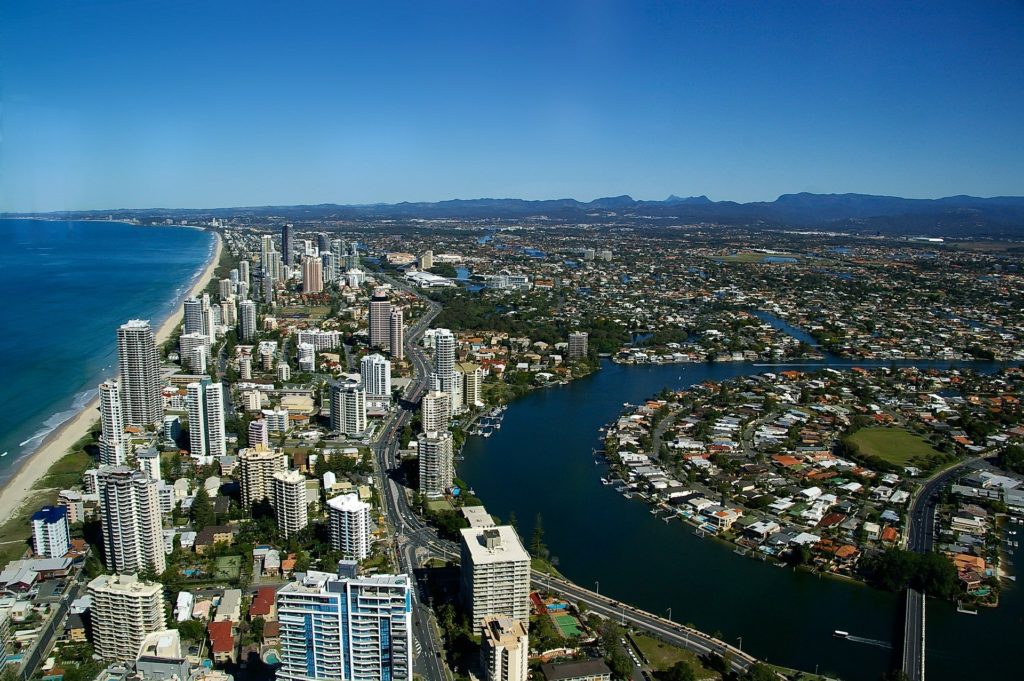The Alliance for a Climate Resilient Earth (ACRE) unites the strength of our member organizations through strategic communications and advocacy for an action agenda. ACRE is the collective voice for the alliance of member organizations in private industry, civil society, and academia. We create public private partnerships and encourage collaboration and innovation between our member organizations
Climate-related disasters, spurred on by rising emissions, are growing in frequency, severity, and scale, reaching ominous and unprecedented proportions around the world. Cities and countries are experiencing the devastating impacts of hurricanes, floods, wildfires, droughts, sea level rise, and extreme weather events. Lives, property, houses, infrastructure, ecosystems, and livelihoods are endangered. People are demanding actions to safeguard them from these rising risks. No leader in government or the private sector can afford to stand aloof from these threats and dangers. Epic disasters, damages, and losses will define the 21st century unless the world embraces the principles of climate resilience.
The challenge to build climate resilience is too large for any one organization, company, or government. It is a civilizational task. When brought together for a grand, common endeavor, the private sector, civil society, and academia have the capacity and global reach to mobilize the economic and organizational power, the financial might, and the stream of innovations and breakthroughs that are essential to build a climate resilient world. Through collaboration, synergies, and a shared sense of corporate and planetary responsibility, they can write the agenda for climate resilience. As ACRE member organizations, they represent the vanguard of a new era for climate action.
Since neither governments nor the private sector can win without helping each other, ACRE is dedicated to the public/ private partnership approach for climate diplomacy. When world leaders created the historic Sustainable Development Goals, they chose partnerships as the proven method for success. ACRE member organizations need the enabling power of governments and governments need the skills and capacities of ACRE member organizations. International cooperation, trust, and multilateralism can create partnerships that are genuine, durable, and far-seeing.
Board of Counselors
Stan Bronson
Jan Hartke, Chairman
Sarah Stimson Karis
Anne Pence
Elise Zoli
Resilience Ambassadors
Joyce Coffee
Peter Hall
Areas of Focus
Climate resilience should be a top priority for the world, on par with mitigation, because it is the action agenda that underpins each of the 2030 Sustainable Development Goals. As the private sector and civil society advocate for climate resilience, ACRE will create working groups and partner with national governments, cities and states, and intergovernmental organizations to leverage support for vulnerable populations, showcase innovative projects, and build the future we want.
Infrastructure & Supply Chains
We are building the cities of the future now. It is imperative that infrastructure is built to last, sustainable, and resilient over the life cycle of every project in the built environment.
Finance & Investment
Capital needs to be mobilized on a scale never before seen to achieve the future we want. Only by focusing on investment, lending, finance and risk transfer gaps can we overcome the barriers to a climate resilient world.
Insurance & Reinsurance
Climate-related disasters are striking with unprecedented damages and losses. The past record is no longer a reliable guide to the destructive forces that are unleashed. Insurance and reinsurance will need to keep up with the new waves of uncertainty that rising emissions are causing.
Security & Culture of Preparedness
Scientists have warned of a cascade of disasters ranging from super hurricanes to epic floods, wildfires and droughts, sea level rise and extreme weather events. These threats and their fiscal impacts have become a matter of national security to every country in the world. Resilience must become part of a nation’s character.
Natural Infrastructure
The free ecological services that come from nature are often denigrated because they are not factored into the GDP. Just as engineers and developers need to build the hard infrastructure, the life support systems of the planet will need to be resilient and sustainably managed.
Energy
Global energy use is exploding, yet 1.2 billion people have no access to electricity. The disruptions caused by climate disasters can turn the lights out on modern civilization. Breakthroughs in science, advancements in technology, and investments in energy efficiency and grid reform will be needed as energy systems are transformed to meet resilience and sustainability standards.
Food & Agriculture
As much as 40% of the food in developing countries is wasted and acreage per person is diminishing. Improvements in storage, watershed stabilization, restoration of degraded land, and climate smart agriculture with digital platforms can build resilience into agricultural systems and feed a hungry world.
Water & Sanitation
Aquifers for irrigation are drying up, rivers are already burdened by pollution and overuse, rainfall is increasingly unreliable due to climate change, and water systems are often unable to capitalize on economies of scale. Water-stressed countries are proliferating. Integrating the principles of a circular economy and better water management are urgently needed.
Initiatives & Action
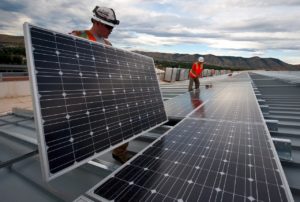
ACRE is working with engineering organizations to develop innovative criteria and rigorous standards for resilient and sustainable infrastructure that will withstand the climate-related and other convergent threats that are likely to occur over the life cycle of the projects.

Governments at all levels are engaged in the climate challenge. In accordance with UN Sustainable Development Goals, ACRE will establish public/ private partnerships as its organizational approach.

To improve the ability of organizations to collaborate, ACRE is deploying SustainChain™, a software platform developed by the US Coalition on Sustainability for the SDGs. The platform uses artificial intelligence to match and support joint action across organizations. We are developing an enhanced version focused on resilience.
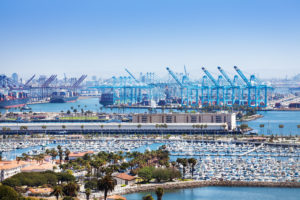
At the heart of the alliance is the absolute necessity for constant innovation to sweep across the full spectrum of climate resilience. The purpose of ACRE is not to build back to a fragile status quo, but to use the creativity of our member organizations to shift to a higher level of societal well-being.
Member Initiatives

Qlik is a leading technology company providing data management software to over 50,000 global clients. Qlik is partnering with ACRE to drive best in class data measurement and knowledge-sharing across members and initiatives. Qlik and ACRE are developing a series of member tools and public dashboards to monitor and measure progress towards climate resiliency objectives and the 17 Sustainable Development Goals.
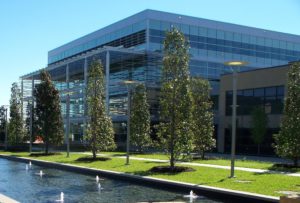
The demand for healthy, safe, climate resilient, green buildings are growing swiftly, particularly as the deaths from pandemics and the disasters of climate change touch the buildings where people work and live. Developers are increasingly finding it advantageous to build to a higher standard to protect people, property, and livelihoods.

ACRE supports sustainable investing in infrastructure and other climate resilient portfolios, blended financing for multilateral development banks, and the adoption of environmental, social, and governance (ESG) criteria as a standard practice across the institutional investors’ industry within five years. Risk/return profiles should be in line with long-term goals.
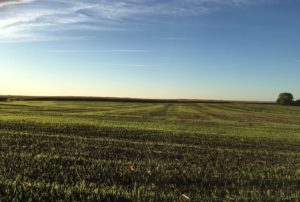
Food security depends on innovations in agriculture. Prevention of food waste through proper storage is step one. The digital platform that has revolutionized much of society and will be extended across the agricultural landscape needs to be introduced in a way that sustains small farmers, increases productivity, conserves water, integrates trees, and enriches the soil.
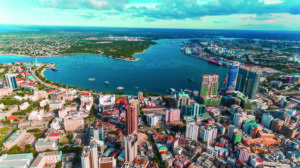
As the risks from climate change continue to grow, business leaders, financial institutions, and government policy makers need tools that can help them incorporate climate risk and its uncertainties into future planning decisions. By identifying key risk areas, the Climate Risk Vulnerability Index (CORVI) enables government policy makers, public and private investors, and the insurance industry to better understand the linkages and drive funding into areas of greatest concern.
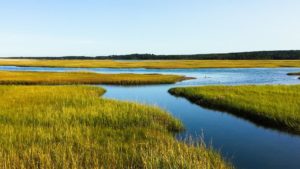
Nature-based solutions provide the indispensable foundation for our economic systems. Climate impacts on ecosystems are complex and varied, but the interlocking nature of these systems is best defined through the lens of ecological economics. Biodiversity, forests, coastal resources, air and water, and climate interactions are essential parts of any successful plan.
Membership
Member Spotlights
ACRE is a member-driven organization focused on delivering upon the goals of sustainable development and climate action. Through collaboration, synergies, and a shared sense of corporate and planetary responsibility, ACRE and its members will write the agenda for climate resilience. Members bring their individual efforts and global expertise to the ACRE organization and receive in return the value of a great global partnership in ACRE. We are stronger together.
AECOM
Alliance to Save Energy
Ambata Capital, LLC
American Renewable Energy Institute – AREI, Inc.
American Society of Adaptation Professionals
American Society of Civil Engineers
American Water Resources Association
Arctic Ice Project
Argonne National Laboratory
Arizona State University, Ten Across
Association of Energy Services Professionals
Black & Veatch
Capital Markets Partnership
CDM Smith
Center for Climate Strategies
Center for Sustainable Energy
Chen Moore and Associates
Circle of Blue
Clean Fuels Development Coalition
Climate Resilience Consulting
Climate XChange
College of Architecture at Texas A&M University
Columbia University
Conservation Biology Institute
Conservation International
Crowell & Moring International
Curtin & Heefner, LLC
Duke University, Fuqua School of Business
Earth Council
Edenark Group
Eklund Hanlon LLC
ESRI
Florida Institute for Built Environment Resilience (FIBER)
Fluor Corporation
Forterra, Inc.
GIST.Earth LLC
Global EverGreening Alliance
Global Green
Global Integrated Assets, LLC
Global Resilience Institute, Northeastern University
Global Water Works
Grphne America, LLC
Human-I-T
ICF
Idaho National Laboratory
IHE – Delft, Institute for Water Education
Indian Agribusiness Systems Limited – AgriWatch
Indian Society Of Agribusiness Professionals – Indigram
Innovator Capital Limited
Institute for Sustainable Communities at Texas A&M University
Institute for Sustainable Infrastructure
Insurance Institute for Business & Home Safety
Integrative Health Policy Consortium
Intentional Endowments Network
International Code Council
International WELL Building Institute
IUCN (International Union for Conservation of Nature)
Johnson Controls
Lawrence Livermore National Laboratory
LIFE, Inc.
Lockheed Martin
Logistics Management Institute
Marsh & McLennan Companies
Massachusetts Institute of Technology (MIT)
MD Sands Consulting Solutions, LLC
Miami-Dade County
MITIGAT.COM, Inc.
Mott MacDonald
NASA-HQ
National Council for Science and the Environment
National Energy Technology Laboratory
National Renewable Energy Laboratory (NREL)
Natrx, Inc.
Northern Virginia Regional Commission
NTELX, Inc.
Old Dominion University
One Concern
One Water Academy
Orion Solutions, LLC
Pacific Gas and Electric Company
Pearl Quest, LLC
PopTech Institute
Prescient360 Group, LLC.
ProNatura International and Earth Capital
Qlik
RadiantNano
RAND Gulf States Policy Institute
Rebalance Earth
Redpill Group Ltd
Resilient Organisations
Sandia National Laboratory
SBG Technology Solutions, Inc.
Siemens Gamesa
Sparkbeyond
Stantec
Stimson Center
Strategy of Things
SUEZ
Sustainable and Resilient Resources Roundtable
Sustainable Design Group
Symbaiosys, Trillion Tree Fund
Synergetico Consulting
Terra Global Capital, LLC
The Environmental Financial Consulting Group, LLC
The George Washington University, Environment & Energy Management Institute
The GPC Group
The Hatcher Group
The Jahn Research Group
The Ohio State University
The Stella Group, Ltd.
The Urban Land Institute
The Water Council
TransMedia Group
Transportation Choices for Sustainable Communities Research and Policy Institute
Trident Water Company, LLC
UN Office for Disaster Risk Reduction / ARISE
University of Arizona, Arizona Institutes for Resilience
University of California, Santa Barbara
University of Delaware
University of Florida
University of Hawaii
University of Pennsylvania, The Wharton School
University of Texas, LBJ School of Public Affairs
University of Virginia
University of Waterloo, Intact Centre on Climate Adaptation
US Submergent Technologies, LLC
Vector Center
Ventana Systems, Inc.
Virginia Tech, Center for Leadership in Global Sustainability
Water Foundry
Water Science Associates
Wildlands America
Wood Group PLC
Xylem
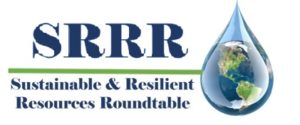
Contact
Membership Interest
- Jyotshna Herbert
- [email protected]
Support & Other Inquiries
- Advancement Team
- [email protected]

